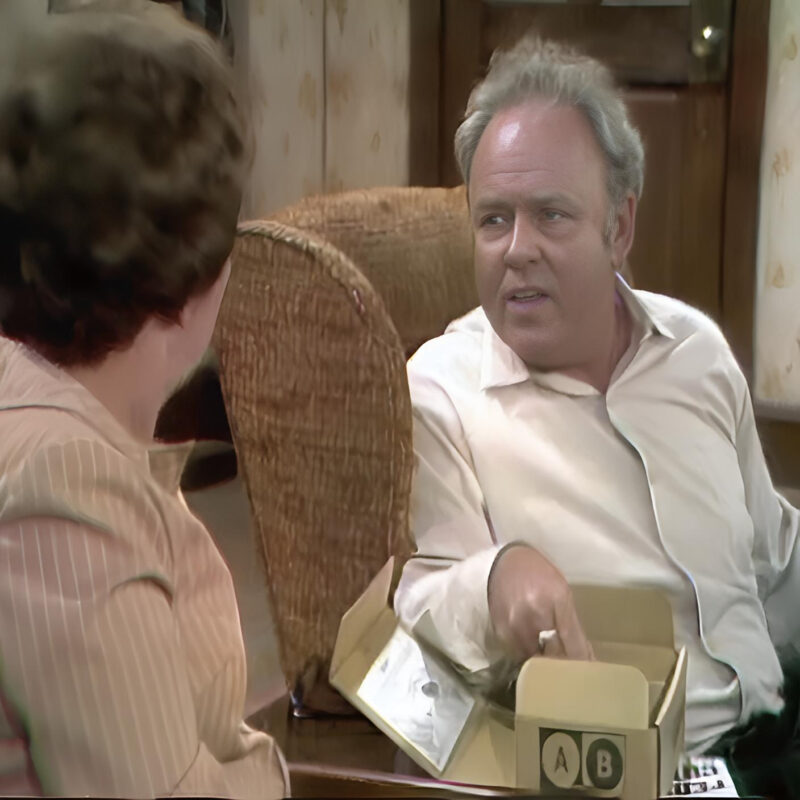
Every artist reaches a point where they draw a definitive line in the sand, indicating a firm boundary they refuse to cross. For one star of “All in the Family,” this line was drawn around a particular episode they passionately opposed, going as far as involving attorneys to make their stance clear. Here’s the story of what happened and how it was ultimately resolved.
Carroll O’Connor’s Beginnings and Audition
Carroll O’Connor, who would become synonymous with the character Archie Bunker, trained as an actor in Dublin. His audition for “All in the Family” was a standout moment, as creator Norman Lear recounts in his 2014 memoir, Even This I Get to Experience.
“When Carroll came to audition, he entered as the cultured, New York- and Dublin-trained actor he was,” Lear wrote. “When he turned to the script to read, his voice, his eyes, and the attitude of his body shifted; he opened his mouth, and out poured Archie Bunker. Carroll hadn’t reached page 3 before I wanted to run into the street shouting for joy.”
The Role that Caught Lear’s Eye
Lear first noticed O’Connor in the 1966 film What Did You Do in the War, Daddy?, where O’Connor played a small, dramatic role. Despite being known primarily as a character actor at the time, O’Connor’s performance left a lasting impression on Lear.
“I’d seen [O’Connor] in a picture that [director] Blake Edwards did called What Did You Do in the War, Daddy? He played an officer. One scene in a tent. It was a dramatic scene, it wasn’t really comedy. But that face,” Lear said, laughing. “He was blustery and had an element of what I wanted in Archie Bunker.”
Lear believed O’Connor’s expressive face would captivate television audiences, especially in close-ups.
The Controversial Episode
The conflict arose over an episode titled “The Elevator Story.” The script involved a pregnant woman giving birth in an elevator, surrounded by four onlookers. Upon reading the script, O’Connor was vehemently opposed, declaring it impossible to film such a scene on an elevator and refusing to participate.
Lear described the intense moment in his memoir, noting that during discussions with CBS, Lear, and their respective attorneys, O’Connor burst into tears, adamant that he would not do the episode. He exclaimed, “You know you can’t do that! A baby born on the floor of a godd**n elevator! What’s that all about? I don’t want to talk about this anymore!”
Despite O’Connor’s emotional protest, Lear decided to proceed with the episode. O’Connor boycotted the set, leading CBS’ attorneys to warn him that “All in the Family would be canceled” if he did not report for work. Faced with this ultimatum, O’Connor returned to set, and the episode was filmed.
The Outcome
The controversial episode, “The Elevator Story,” ultimately aired and won a 1972 Emmy for Outstanding Achievement in Live or Tape Sound Mixing. While it may not have been the most glamorous award, it recognized the exceptional work of sound man Norman Dewes in overcoming the challenges of filming on an elevator.
This episode not only highlighted O’Connor’s dedication to his craft but also underscored the show’s ability to tackle complex and controversial topics, cementing “All in the Family” as a groundbreaking series in television history.
